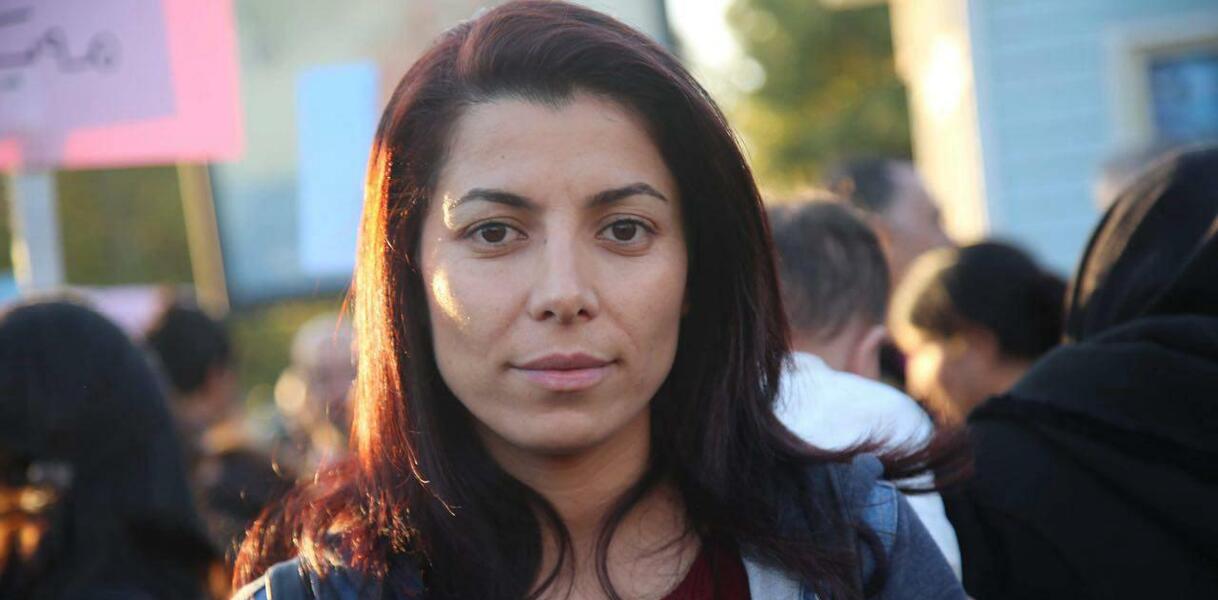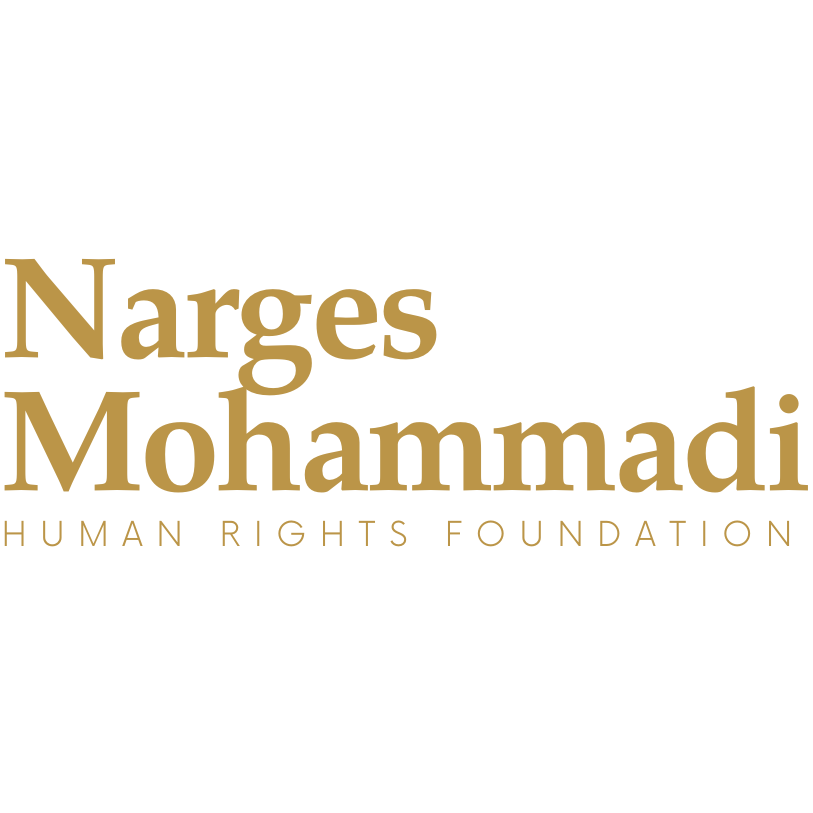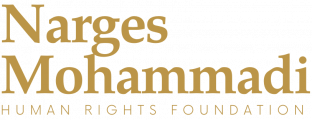
Narges Mohammadi’s Statement in Support of Varisheh Moradi, Political Prisoner Sentenced to Death
Narges Mohammadi’s Statement in Support of Varisheh Moradi, Political Prisoner Sentenced to Death
“I spent several months with Varisheh as a fellow inmate in Evin Prison. I know her personally, and I’ve heard, to some extent, her accounts of the struggle in Rojava and her fight against ISIS. I am familiar with her perspectives on resisting ISIS.
She and others like her made the courageous choice to stand up to this terrorist force, even at the cost of their lives and health. They paid a heavy price in the course of that resistance. Varisheh is one of those who were wounded in the fight against ISIS. She still carries shrapnel in her body, which causes her significant pain.
Now imprisoned, she is being denied access to medical treatment. According to the most recent information I have, despite the fact that both hospital physicians (from where she was once transferred) and doctors inside Evin’s prison infirmary have confirmed she needs regular medical care, exams, and surgery, this has not been granted. She remains deprived of essential treatment and medication.
I have witnessed on several occasions how security institutions intervene in specific cases like Varisheh’s. It is not just the judiciary or prison authorities who make decisions—security agencies must also give approval, including for medical transfers. Varisheh’s condition is very serious, due to the injuries she sustained from shrapnel during her fight against ISIS.
But the core issue is that we have gathered today to protest the death sentence issued against a woman—Varisheh Moradi.
The fight against the death penalty is a priority for us—not only because execution is a fundamental violation of human rights, but especially in regimes where the judiciary lacks independence and is instead subordinate to an authoritarian system. In such regimes, opposing the death penalty must be a collective priority.
We are facing a system built on repression and authoritarianism. If we are committed to human rights, then the fight against the death penalty is inseparable from our broader struggle for democracy.
I believe that, given the current conditions in our society, opposing executions must remain one of our key priorities. Even those who may not explicitly identify with human rights work but are committed to resisting the Islamic Republic must recognize that abolishing the death penalty is part of that fight. These two are, in my view, inseparable.
To continue this struggle, we need to dismantle the machinery of execution. We need to halt the issuance and enforcement of death sentences—because the regime uses execution as a powerful weapon of repression against dissent and resistance.
From this perspective, I believe we must all unite our voices in opposition to the death penalty. I hope that one day, like many other countries, we can declare that capital punishment has no place in our judicial system. That day will mark a major milestone, and we will achieve further victories from there.
I am hopeful that we are working toward such a future—and I believe, whether it takes time, whether it is difficult or not, sooner or later, we will reach that goal”
متن (فایل صوتی) پیام نرگس محمدی به جلسه مجازی گفتگو برای حمایت از #وریشه_مرادی، زندانی سیاسی محکوم به اعدام که روز ۱۴ فروردین ۱۴۰۴ (۳ آوریل ۲۰۲۵) به ابتکار «کمپین آزادی وریشه مرادی» اینجا در اسپیس توییتر برگزار شد.
متن پیام خانم نرگس محمدی: «سلام عرض میکنم خدمت شنوندگان و حضار محترم در این نشست که برای اعتراض به حکم اعدام وریشه مرادی در حال برگزاری است. من با وریشه در زندان اوین ماهها همبندی بودم و او را از نزدیک میشناسم و تا حدودی از مبارزات او در روژآوا و در مبارزه علیه داعش روایتهایش را شنیدهام و دیدگاهایش را در رابطه با مبارزه با داعش میدانم. آنها در واقع تلاش کردند حتی به قیمت جانشان، به قیمت سلامتیشان، مقابل این نیروی تروریستی بایستند و تاوان سنگینی را در همان موقع حین مبارزه پرداختند. وریشه در واقع جزو مجروحان جنگ با داعش است، هنوز آثار ترکش در بندش وجود دارد که در واقع رنج زیادی را به او تحمیل میکند. [او] به دلیل اینکه در زندان هم گرفتار شده امکان درمانش را فراهم نمیکنند. طبق آخرین خبرهایی که من دارم، علیرغم اینکه وریشه هم طبق نظر و بررسی پزشکان بیمارستانی که به آنجا اعزام شده بود و هم بر اساس نظر پزشکان بهداری داخل اوین نیاز به مراقبتها، معاینهها و عملهایی دارد، ولی این امکان را بهش نمیدهند و [او همچنان] در محرومیت پزشکی دارو و درمان قرار دارد.
من خودم بارها شاهد بودم که نهادهای امنیتی نیز برای کیسهایی خاصی مثل وریشه وارد میشوند و فقط نهاد قوه قضاییه یا سازمان زندانها دخیل نیستند، بلکه نهادهای امنیتی هم نظر میدهند. یعنی اجازه برای اعزام باید از طریق آنها هم تائيد شود. وریشه به علت بیماری که به موجب ترکشهایی که در جنگ با دعش در واقع متوجه او شده، شرایط سختی دارد.
اما مساله بعدی این است که اساسا این نشست را برای [موضوع صدور حکم] اعدام یک زن، برای وریشه مرادی، برگزار میکنیم.
مبارزه با اعدام برای ما جزو اولویتهاست. نه تنها از منظر اینکه اعدام یک نقض حقوق انسانی است، به ویژه در حکومتهایی که سیستم قضایی آن استقلال ندارد و وابسته به رژیم است و رژیم خصلت استبدادی دارد. در یک چنین رژیمهایی به نظر میرسد مبارزه با اعدام برای همه ما جزو اولویتهاست. چرا که ما با این خصلت استبدادی، با این خصلت در واقع سرکوبِ حکومت داریم مواجهه میکنیم و اگر نگاهی به تضمین حقوق بشر داریم در مبارزه علیه اعدام، نگاهی هم به تداوم مبارزات تا رسیدن به دمکراسی داریم. ازا ین رو من فکر میکنم که در شرایط فعلی جامعه، اعدام هنوز جزو اولویتهایمان است. حتی اگر کسی دغدغه حقوقبشری هم نداشته باشد اما قایل به مبارزه با جمهوری اسلامی باشد – که البته به نظر من تفکیک ناپذیر ست. اما برای تداوم این مبارزه نیز ما نیاز به برچیده شدن طنابهای دار داریم، نیاز به توقف صدور و اجرای احکام اعدام داریم. چراکه حکومت از اعدام به عنوان یک ابزار قدرتمند سرکوب علیه مبارزان استفاده میکند. از این منظر من فکر میکنم که ما باید همه با هم علیه اعدام همصدا شویم. امیدوارم روزی موفق شویم که ما نیز مثل بسیاری از کشورها اعلام کنیم در سیستم قضاییمان مجازات اعدام جایی ندارد. و خب به تبع این ما به دستاوردهای جدیای بعد از آن دست پیدا خواهیم کرد. امیدوار هستم که ما برای چنین روزی مبارزه میکنیم و یقین دارم که به هر حال چه سخت، چه آسان، چه دیر چه زود، ما به این دستاورد خواهیم رسید. با سپاس.»


